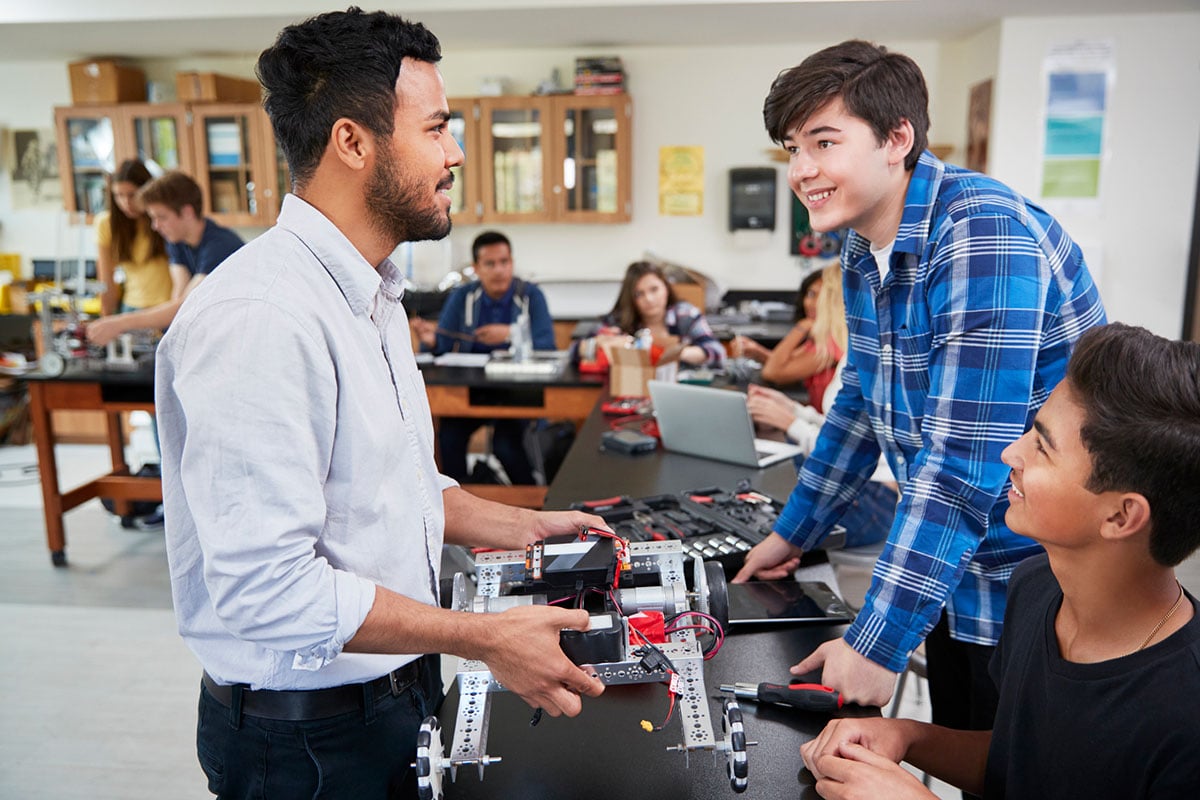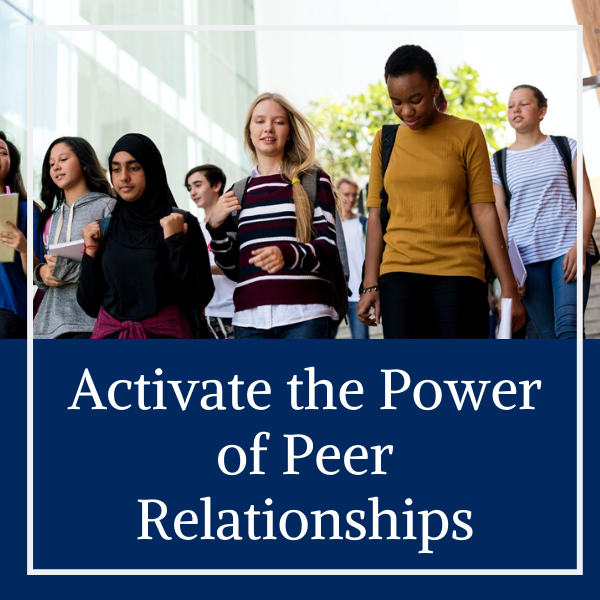Every relationship involves power. But too often, power is wielded rather than shared.
Learning how to share power with others is something that young people learn from the adults in their lives—and sharing power is a key element of the developmental relationships framework, the five elements that help young people learn, grow, and thrive.
What does it mean to share power? And what does it look like when it happens in our relationships with young people?
The Power of Sharing
“Sharing power” is not the same as “equal power,” and sharing power doesn’t mean young people should make all their own decisions.
Because of age, experience, and position, adults inherently possess more power than young people. Adult teachers, mentors, counselors, and other professionals teach, guide, make demands, and set limits that help young people grow.
But a powerful shift happens when we listen to young people and involve them in shaping their own education, experiences, and communities.
The Impact of Sharing Power
Sharing power with young people helps prepare them to be responsible adults and shapes the quality of our relationships with them as they grow up. It makes a positive difference in many ways:
- Family relationships grow deeper when family members influence each other and learn from each other. Parents report being closer to their children when there is give‑and‑take.
- When young people know how to share power, they are more prepared to form strong relationships with peers, partners, bosses, and colleagues throughout life.
- Through shared power, young people learn critical social skills. These skills include communication, negotiation, and problem‑solving.
- Sharing power helps young people become more self‑confident and responsible. They gain a positive identity and learn to form deeper relationships.
- Teenagers are more likely to avoid risky behaviors when parents encourage decision‑making and set clear limits. However, if parents give kids lots of freedom without support or clear limits, young people are more likely to engage in high‑risk behaviors.
- Families can share power in many ways, depending on culture, values, and other differences. However, young people do best when their opinions are respected and they are guided toward maturity.
4 Key Actions to Sharing Power
Sharing power in a developmental relationship involves these four key actions.
- Respect me. Take me seriously and treat me fairly.
- Include me. Involve me in decisions that affect me.
- Collaborate. Work with me to solve problems and reach goals.
- Let me lead. Create opportunities for me to take action and lead.
At its heart, sharing power highlights the ways we influence, learn from, and work with each other through our relationships.
Using Power with Care
With power comes responsibility. Using power with care means treating young people with love, respect, and fairness without manipulating, coercing, or threatening them in ways that harm them or the relationship.
This abuse of power can include physical or emotional violence or manipulation, including withholding affection or approval in order to get their way. When power is used in negative ways, it has serious and lasting effects on young people’s well-being.
Physical and emotional abuse is destructive—it’s the opposite of a developmental relationship.
Teens: The Power Struggle Years
When young people approach the teen years, the power struggle begins because they’re growing up.
- Their brains are changing, and they’re starting to think differently.
- They’re trying to figure out who they are.
- They are shifting from being dependent on others toward having more responsibility and self‑control.
It’s only natural for this to be a time when sharing power becomes difficult. Teens don’t always make the best decisions. But it’s also when sharing power becomes critically important for growth. Sharing power in families helps parenting adults to develop deeper, more meaningful relationships with their children and to learn to trust them.
Sharing power with youth in schools and out‑of‑school programs can be challenging too.
In one community, 68% of young people said they experienced sharing power “often” or “very often” with parenting adults; only 51% experienced sharing power often or very often with teachers, and 52% with program leaders.
That means it’s time to take a look at what we can do to share power during this key developmental stage.
10 Ways to Share Power
- Let young people make decisions about activities and topics to discuss. Don’t jump in too fast when they don’t make quick decisions.
- Offer choices. Rather than simply giving instructions, ask, “What could you do differently to tackle this problem?”
- Learn from young people—and show it. Young people have a lot to teach adults. Let them know when you’ve learned something from them that you’re excited about.
- Include young people in thinking about decisions, even when you have to make the final call.
- When you disagree, take time to understand the young person’s point of view.
- Ask young people for input on activities, assignments, projects, and class content, and on how they can show growth or proficiency.
- Provide opportunities for young people to lead programs based on their interests.
- Emphasize building community and serving others through youth‑initiated projects.
- Give young people a voice in decision‑making that affects them.
- Work to understand young people’s points of view when they share ideas or opinions.
A Culture of Youth Voice
Sharing power with young people and creating a culture of youth voice—where young people’s ideas are both taken seriously and implemented with the support of caring adults—takes a sustained commitment.
The Student Voice Framework is a research‑based tool to support educators in developing and implementing a student voice practice in their classroom or school to create an environment where students feel empowered to participate in and influence the decisions that affect their educational experiences.
It takes adults willing to share power and expand possibilities, and it takes young people willing to take initiative and lead.
And it’s well worth the effort.



